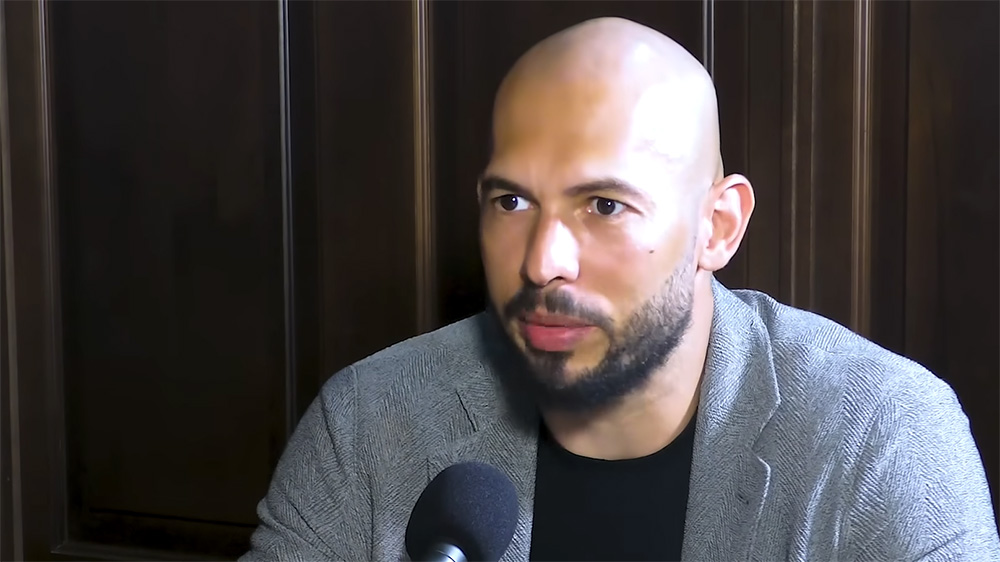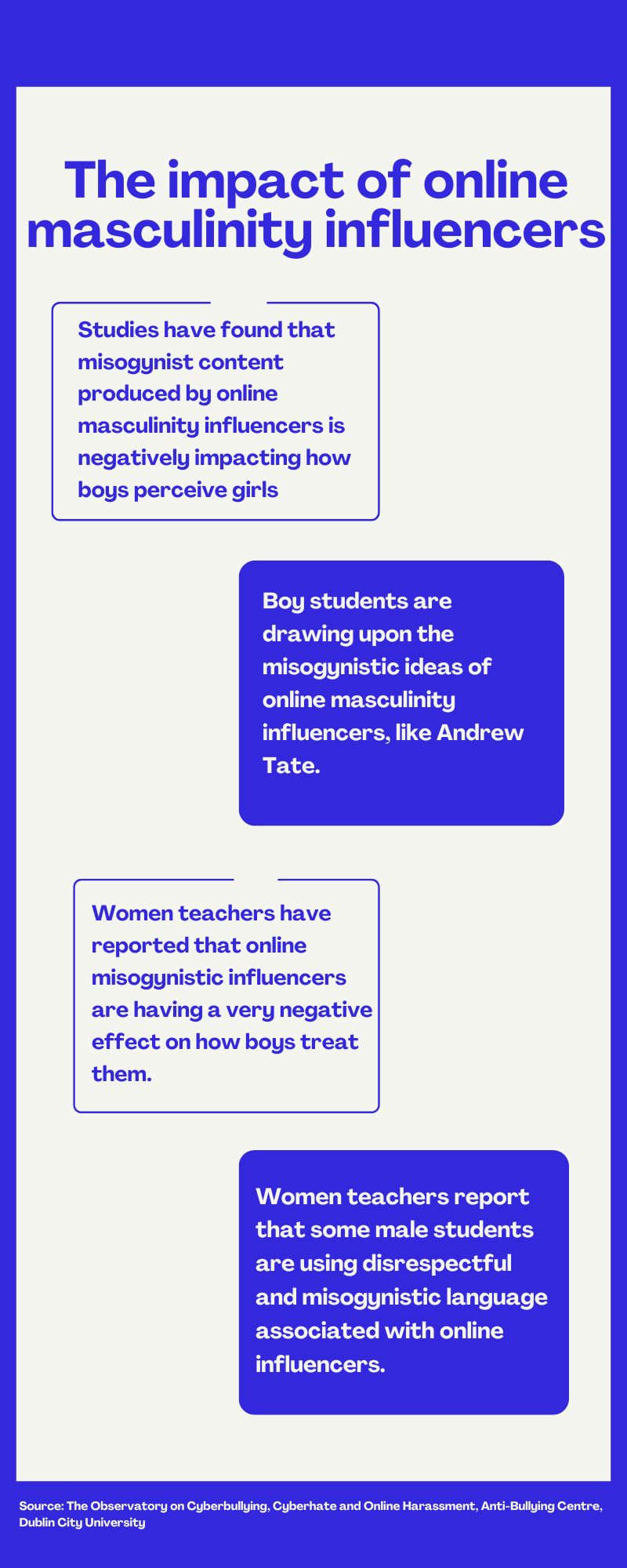Netflix’s hit show Adolescence has brought attention to the online world of toxic masculinity influencers and the manosphere. How is this impacting young men in Cardiff and what can be done about it?

As he scrolled through his instagram sitting alone in his room, Samay stumbled across a reel which caught his attention to stop scrolling. It was a video teaching young boys and men to be an ‘alpha male’.
In the video, Andrew Tate emphasised the importance of having a six pack and that women should stay at home into the minds of young men on the internet. But, this time around, Samay was a bit more aware to get brainwashed into misogyny by the likes of Tate.
Samay Dixit, a digital media and society student says that at first glance Andrew Tate’s content could be seen as humorous but in reality it is harmful. “He was saying a lot of misogynistic things but at the time when you’re a teenager you think it’s really absurd, it’s kind of wrong but the way he’s saying it is kind of funny,” says Samay. “But the more I started delving into that type of content, the more I started finding that this sort of content is really not good.”
Like many others, Samay uses social media as a way to connect, but this is also where many toxic influencers flourish, spreading their harmful, misogynistic ideas and presenting themselves as role models to young men.
A latest Netflix show, Adolescence, showing the effects of those ideas on young minds named Andrew Tate. However Tate is one part of a much wider problem regarding young men’s attitudes and behaviours particularly towards women.
Sir Gareth Southgate, the former England football manager, has called out “callous, manipulative and toxic influencers” who prey on young men and teach them that they should never show emotion and that women are against them.

Dr Ashley Morgan, a senior lecturer of media studies and visual cultures, specialises in toxic masculinity in popular culture and says that toxic masculinity is damaging young men’s mental health. “Toxic masculinity really hurts men, badly, it makes them shut their feelings down. It makes many men feel worthless.”
Ashley says that young men who feel marginalised are drawn to the manosphere space because it provides a sense of community. “Young men very much desire to be in a group even if the ethos of that group goes absolutely against their personal beliefs,” says Ashley.
“So for someone who is desperate to be part of something and feels that the manosphere is aligned with their ideas like “we don’t like women or we think women are out to get us’ then it would be very easy,” says Ashley. “And that is exactly what happens, they get drawn into constant negativity that they start to believe what influencers are saying.”
Manosphere influencers have become increasingly popular on social media by spreading their misogynistic views to impressionable young boys and men.
Samay says that a lot of the content he has seen shames women. “Women are shown as secondary beings through their messages. They talk about sleeping with multiple women but at the same time also talk about the double standards where if a woman does the same thing, it’s wrong,” says Samay.

Discussions around the manosphere and toxic masculinity often highlight the impact of pornography on young men as it reinforces aggression and sexual entitlement.
Ashley says that although toxic masculinity is a new phenomenon, it has a greater impact with the rise of influencers and the accessibility of explicit content. “Take men like Andrew Tate, young men have always looked up to people like that. What is different now is accessibility, especially with young boys having access to such egregious porn now too,” says Ashley.
One proposed solution to help deal with this issue is to show Adolescence in schools. Netflix have announced that they are offering free viewings for secondary schools which has been backed by Keir Starmer.
Ashley disagrees with this idea because it is not fit for a school setting. “I don’t think we should be showing Adolescence in schools, it’s not an educational tool, it’s a drama.”
Ashley says that conversations between men and women need to take place. “I do think women should be involved, and this will help men to understand their behaviour.”
